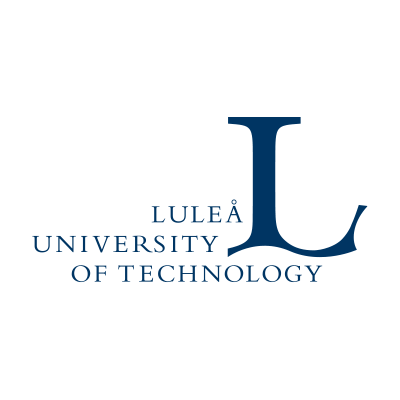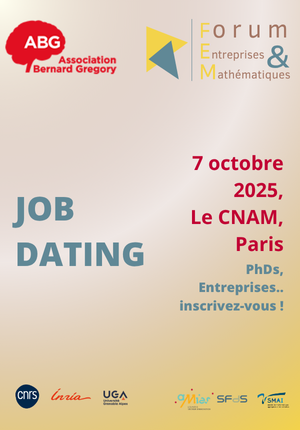PhD Student in Urban Water Engineering – pollutant processes in nature-based stormwater systems
| ABG-133051 | Thesis topic | |
| 2025-07-28 | Public funding alone (i.e. government, region, European, international organization research grant) |

- Ecology, environment
- Chemistry
- Civil engineering, construction and public works
Topic description
Project description
Urban stormwater is contaminated by a wide range of toxic substances, including trace metals and organic contaminants (e.g. hydrocarbons, alkylphenols, PFAS). To reduce pollutant loads that may harm the quality of receiving waters, nature-based solutions (e.g. vegetated, soil-based filters known as stormwater biofilters) are increasingly used to treat stormwater in Sweden and internationally. These systems are complex with many potential processes at play including sorption, physical filtration, accumulation in plants, volatilization and biodegradation. We are recruiting a PhD student to conduct research on connecting a laboratory-based understanding of pollutant processes to the field behavior of full-scale systems. The research work will covers two main topics: (1) laboratory column experiments with isotopic (14C) tracing of key organic contaminants and (2) process-based computational modeling to connect laboratory results with data from previous field-monitoring campaigns.
Results from this project will provide valuable information for improving biofilter design and thus performance. Within this project, the PhD student will be involved in collaboration with international researchers and communicating results with practitioners through LTU’s strong established competence networks.
Duties
As a PhD student, you will perform both experimental and theoretical work within your research area as well as communicate your results at national and international conferences and in scientific journals. Most of your working time will be devoted to your own research studies, including both research and coursework. In addition, you will also carry out departmental duties, such as teaching and/or assisting in other research projects. You will have two or three supervisors who support you in your work. Research work for this project will specifically include experimental work (planning, organizing and carrying out isotope tracing experiments in a laboratory set-up) and modeling (process-based computational models of pollutant transport processes in soil-water systems).
Starting date
Funding category
Funding further details
Presentation of host institution and host laboratory
The Urban Water Engineering research group at the Department of Civil, Environmental and Natural resources engineering at Luleå University of Technology seeks a driven and committed PhD student with a focus on pollutant processes in nature-based stormwater systems. Take the opportunity to study for a PhD in an international, creative and dynamic environment as a part of one of the leading stormwater research groups in the world.
The Urban Water Engineering research group has a strong position in research and education on urban water systems, primarily stormwater, small-scale wastewater and sewage systems.
The group consists of about 50 members including senior researchers, Swedish and international adjunct professors and about 20 doctoral students. The group has an extensive national and international collaboration network. The group's overall goal is to contribute to the development of sustainable urban water systems. More information on www.ltu.se/water.
Subject description
Urban Water Engineering encompasses the entire urban water system (storm drains, drinking water supply and wastewater) with respect to collection, transport and treatment, as well as organisation and planning. The research aims to encourage a strong economy, clean environment and the wise use of resources, while preserving the public’s health and safety.
PhD title
Country where you obtained your PhD
Institution awarding doctoral degree
Graduate school
Candidate's profile
Qualifications
We seek a candidate with an MSc degree or equivalent or fully completed course requirements of at least 240 ETCS of which at least 60 ETCS are at an advanced level or equivalent. The degree should be within the field of water and environment, environmental engineering, chemical engineering, natural resources engineering, agricultural engineering, civil engineering, sustainable urban development, environmental science or equivalent. Knowledge in water treatment, chemical process engineering or pollutant transport in soil systems is required.
Specific knowledge of urban water engineering, organic environmental chemistry, geochemistry, chemical process modeling, urban and/or soil hydrology, stormwater management, basic computer programming (e.g. Matlab or Python) and experience carrying out soil column experiments and/or isotopic tracing are meritorious. Other important skills are the ability to work independently and take an initiative, as well as being able to explore new research areas.
English language skills are required since the research will be conducted in international collaboration and the results will be presented internationally in scientific journals and at conferences. Swedish/Scandinavian language skills are beneficial, as they will facilitate communication with stakeholders and participation in teaching activities. Having a driver’s license is meritorious, as it will facilitate research work.
Applicants should provide contact details to minimum two reference persons on request.
Vous avez déjà un compte ?
Nouvel utilisateur ?
Get ABG’s monthly newsletters including news, job offers, grants & fellowships and a selection of relevant events…
Discover our members
 CASDEN
CASDEN  Aérocentre, Pôle d'excellence régional
Aérocentre, Pôle d'excellence régional  ANRT
ANRT  Généthon
Généthon  Groupe AFNOR - Association française de normalisation
Groupe AFNOR - Association française de normalisation  Institut Sup'biotech de Paris
Institut Sup'biotech de Paris  MabDesign
MabDesign  Laboratoire National de Métrologie et d'Essais - LNE
Laboratoire National de Métrologie et d'Essais - LNE  Nokia Bell Labs France
Nokia Bell Labs France  CESI
CESI  MabDesign
MabDesign  Tecknowmetrix
Tecknowmetrix  PhDOOC
PhDOOC  SUEZ
SUEZ  Ifremer
Ifremer  ASNR - Autorité de sûreté nucléaire et de radioprotection - Siège
ASNR - Autorité de sûreté nucléaire et de radioprotection - Siège  ADEME
ADEME  ONERA - The French Aerospace Lab
ONERA - The French Aerospace Lab  TotalEnergies
TotalEnergies


